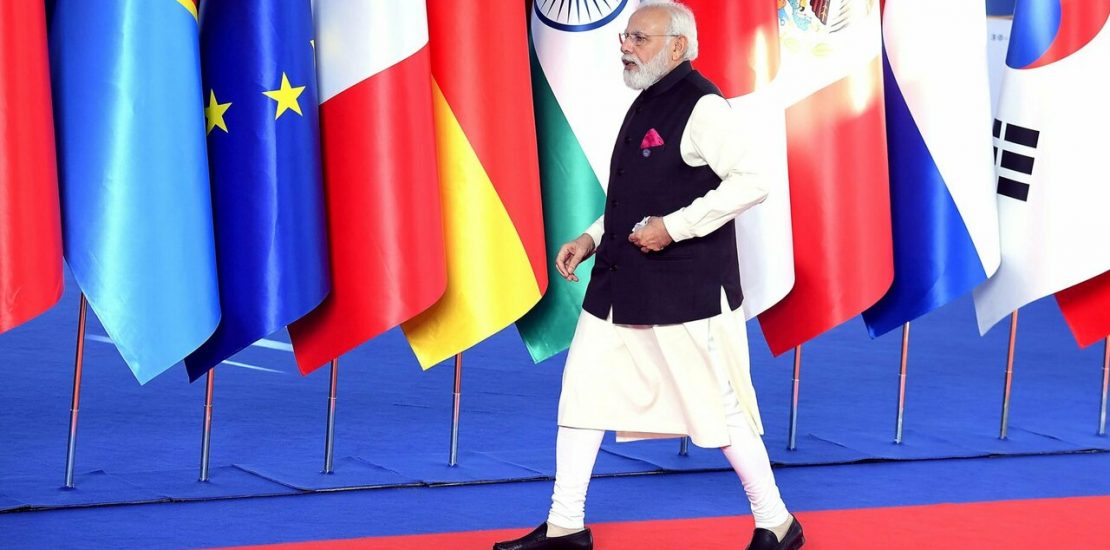COP 26: Doing things right requires time and moneyBy Antonio Picasso
- 4 November 2021
- Posted by: Competere
- Category: Senza categoria

ZERO EMISSIONS BY 2070: FOR INDIA, IT’S EVEN SOON
The leader summit at the COP 26 in Glasgow could seem yet another “blah, blah, blah” event, if it weren’t for the realism shown by the Indian prime minister, Narendra Modi, in saying that India will reach zero emissions only in 2070. Twenty years past the deadline set by USA and EU. Ten years after China and Russia.
Only those who are not aware of what daily life looks like developing countries – among which India is certainly one of the most advanced – can believe that an unprecedented cultural and productive transformation can be reached in under thirty years. Only those who don’t realize the time and the effort needed to introduce development and wealth in a society where pro-capita income remains below two thousand dollars per year can think that Modi’s words were dictated by inflexibility or populism. Transforming an economic system into a sustainable one requires a big picture mentality that both world leaders and their protesters on the streets do not wish to adopt, making example of clear intellectual dishonesty. To a population of 1,4 billion, half of which does not have regular access to drinkable water, concepts like Industry 4.0, Internet of Things, smart homes and even the hybrid car can appear extremely far-fetched and abstract.
MODI’S REALITY CHECK
It does not suffice to say that poorer countries want to become rich first, and green second. If we continue to think of the energetic transition as a mechanical process, akin to a car whose oil tank can swiftly be substituted with an electric battery, we forget about the myriad of ramifications that go beyond the car and gas. It is an issue of cultural, social and political development. We can dream of doting an old woman in a remote village of Kerala with a solar panels and induction burners to take the place of her smokey stove. But that requires designers, skilled workers, scarce materials, infrastructure, favorable norms, as well as consumers who are aware of the technology that is available to them. Shortly put, what is needed is time.
When we look at it like this, we could even call Modi an optimist. He has shown to be more conscious than the protesters in the streets or those who make empty promises to appease them. Like, for instance, the UN Secretary General, Antonio Gueterres, who has suggested “taxing polluters, not people.” A populist quip, demonstrating how even the highest levels of diplomacy don’t know that a village in the heart of India, where people lack sewers, recycling facilities, and warm up with coal and gas, pollutes more than a cast iron foundry working on clean energy in Northern Italy.
CATCHING CO2 TO SAVE CLIMATE AND INDUSTRIES
Controversy aside, here is the idea. Admittedly, a fairly prosaic one: instead of taxing polluters, why don’t we incentivize those do not pollute or could stop polluting? France and Italy have already taken this road. The cut on the carbon tax and the launch of a maxi-fund to support virtuous companies on their ecological transition are positive examples that should be replicated beyond national borders.
The most innovative supply chains are searching for new systems to allow for energy recycling. However, technologies for energy salvaging and emission cutting within single industrial complex are still prohibitively expensive, still reliant on research advances, and still lacking complete security checks. International constraints, mainly stemming from geopolitics or fiscal policies, suffocate the natural process of circulation of technological innovation. Preferring fiscal collection to investment stimuli means adopting a punitive attitude toward those who have truly reached a level of industrialization that is 4.0, thus keeping them from making that last step forward that would benefit everyone. Because, after all, those who invest in new projects usually have an interest in selling them.
